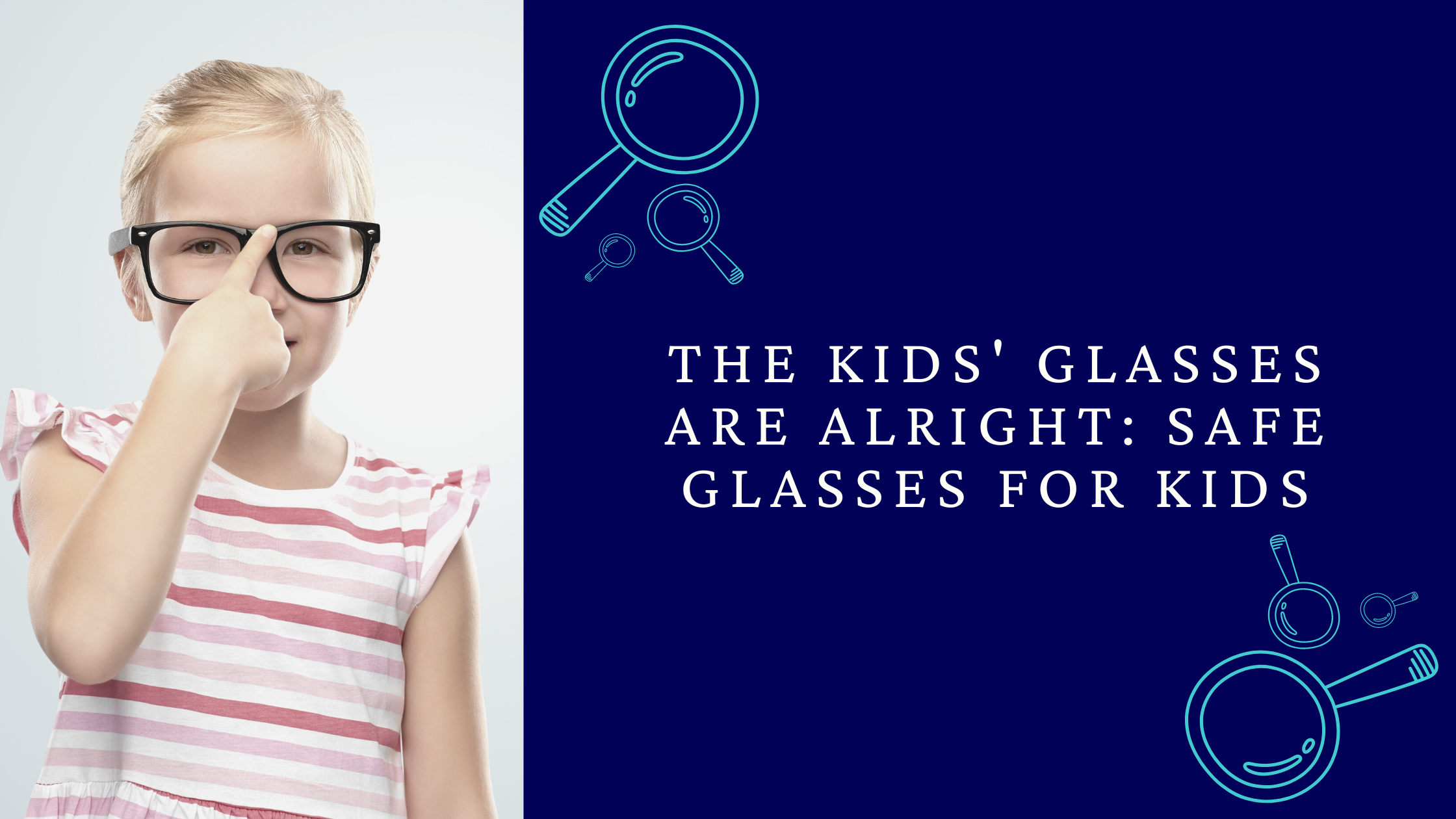
Did you know that vision disorders in children are not uncommon and often go untreated? One in four children will experience a vision problem that interferes with learning or behavior. Think about it. So much of what children learn is by seeing. If they have trouble with their vision, it will likely affect their conduct at school or home. It is difficult to determine if your child is experiencing vision problems because the signs may not always be obvious, and kids aren’t always the most reliable source for their eyesight complaints. The good news is that most childhood vision problems can often be treated by simply fitting them with a good pair of glasses. The even better news is that finding kids’ glasses they’ll actually wear doesn’t have to be a big ordeal.
Which Glasses are Best?
If you’ve ever worn glasses, you already know there’s a fair amount of adjusting or pushing them up the bridge of your nose. Tiny tots generally struggle with keeping glasses on their faces, but not if you’ve found the right pair! For babies and toddlers, the best kind of glasses are flexible and durable, with straps that go around the back of the head to keep them in place.
For young children, plastic frames are ideal. They stay adjusted better than metal frames. Structures that are out of adjustment can put the lenses out of adjustment so that they are not correcting the vision properly. Something else to consider is that kids are not historically great at keeping track of their glasses. Plastic frames are low-cost and affordable, which is good news for any parent of a bespectacled youngster who might misplace a thing or two now and then. Kids’ (and adult) glasses have come a long way. There are many ways for your child to express themselves through eyewear. With different colors, prints, and embellishments, they might have difficulty choosing what fits their personality best. A new popular trend is to have magnetic, interchangeable frames. Imagine having a new pair of glasses for every day of the week.
What are the Best Lenses for Kids’ Glasses?
Get polycarbonate lenses. These lenses are made of strong yet lightweight plastic and are among the most impact-resistant lenses on the market. They are essentially “kid-proof.” For an active child, this can make all the difference between an accident where a piece of glass goes into the eye (catastrophic!) or just the nuisance of a bent or broken frame. For children heavy into sports, you’ll need to invest in safety glasses explicitly made for this purpose. Just like babies and toddlers need more flexibility and structure to their specs, athletes will need the same functionality. This will help them make goals or touchdowns and not worry about adjusting their glasses.
Today’s youth spend a lot of time on computers, gaming consoles, tablets, and of course… their phones. Blue light lenses have become quite popular because of our little techies. Wearing blue light glasses minimize direct blue light exposure, which in turn, minimizes headaches due to eye strain.
If your child is sensitive to sunlight in their eyes and needs sunglasses even when it’s cloudy, you may want to consider transition lenses. These lenses automatically adjust to help protect from UV rays and blue lights from screens. Of course, there is always the option of prescription sunglasses as well. Of course, this would mean that your child would have to keep up with two pairs of glasses, but with all the choices out there, prescription eyeglasses and sunglasses are becoming more and more affordable.
Does Your Child Need Glasses?
Is your child displaying some classic signs that they might need glasses? Such as: sitting too close to the television, squinting, tilting their heads, covering one eye, etc., fear not! With Kids Vision Check, you may be able to identify eyesight problems with our easy-to-use App! Kids Vision Check is a FREE app for screening purposes only and is not intended to diagnose vision problems or diseases. Please seek the advice of an eye care professional for an official diagnosis, and the sooner, the better. If your young child is having trouble adjusting to glasses as a new part of their routine, try taking baby steps by setting small goals. For instance, have them wear them for an hour every day, then gradually bump that up. Eventually, they won’t even remember when they didn’t have glasses on their adorable faces.
And remember, just like adults, kids will need a yearly eye exam as their prescriptions can change and sometimes change quickly. Congrats to you for taking the first steps to help to protect your kid’s overall eye health!
